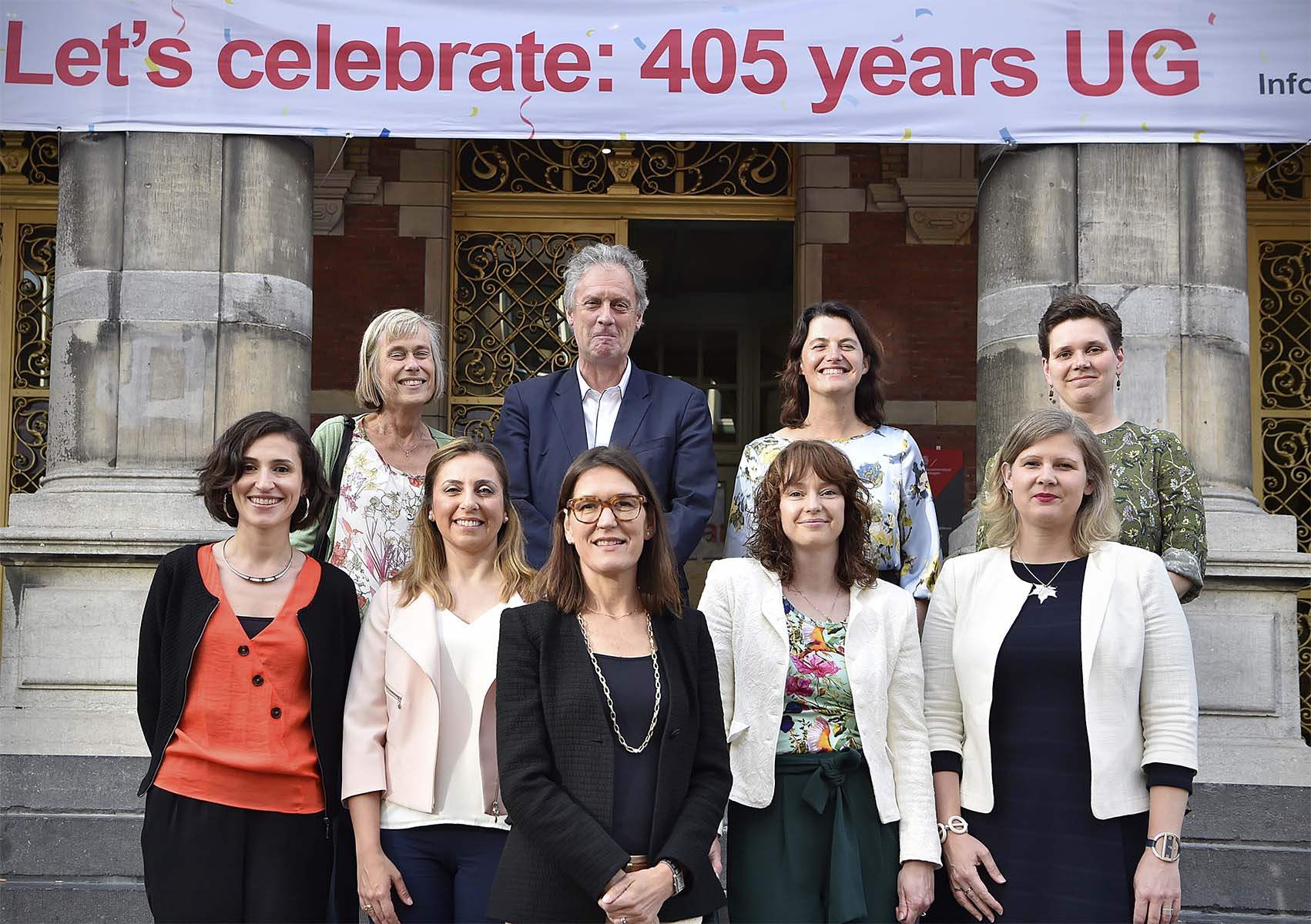Celebrating the 100th Rosalind Franklin Fellow at the UG
During its 81st lustrum, the University of Groningen will celebrate the appointment of the 100th Rosalind Franklin Fellowship (RFF) academic. This will take place during a festive gathering on the evening of Thursday 6 June in the Aula of the Academy Building. During the gathering, the nine Fellows of 2018 will be welcomed and introduced. One of the speakers of the evening is American journalist and writer Kate Zernike.
First in the Netherlands
The UG initiated the Rosalind Franklin Fellowship programme in 2002 at the Faculty of Science and Engineering, to promote the progress of international, talented female researchers. The programme offers a tenure track position that leads to full professorship and is aimed at women in the academic world, in research institutes or in companies, who have obtained a PhD. The programme was expanded University-wide in 2007. The UG was the first university in the Netherlands to launch such a programme. Since then, almost all Dutch universities have followed the UG’s example and have developed a similar career track for women in their institutions.

The Nobel Prize
The UG named the RFF programme after Rosalind Franklin, because she never received the recognition and value that she actually merited during her life. Two of her male colleagues received a Nobel Prize on the basis of her own work, without crediting her. This programme is therefore an homage. In 2014, an EU subsidy made it possible to continue the programme and to broaden the number of Fellows.
Rector Magnificus Elmer Sterken: “We wanted to offer female academic talent the space to progress to higher academic positions, and thus to contribute to the improvement of the balance between men and women in higher academic positions at our University.”
Results
Within 10 to 12 years after being appointed, each Fellow has the chance to reach the level of professor. The results of the programme are impressive. “In the last few years, we have offered over 100 positions. 81 Fellows are still working at the UG and UMCG. In addition, over a quarter of our female professors reached their position via the RFF programme”, says the Rector Magnificus. The Fellows who no longer work at the UG mainly moved to other highly-reputed universities. Sterken: “Our programme is recognized internationally as a good incubator of female talent. It is always a shame when a Fellow decides to leave the UG, but from this, new collaborative links with other universities often arise.”
Last month, the UG recruited candidates for a grand total of 39 RFF positions. The selection process is now taking place. “On the way to 150 Fellows!”, exclaims the departing Rector Magnificus.

More info
The programme for the celebration of the 100th RFF:
Thursday 6 June, 8.30 – 10.00 pm
Aula Academy Building, Broerstraat 5, 9712 CP Groningen
Chair of the ceremony: Prof. Ellen Nollen, RF Fellow
- 8.00 pm Coffee
-
8.30 pm Start of programme
- Welcome by Prof. Ellen Nollen, RF Fellow
- A few questions for Prof. Elmer Sterken, Rector Magnificus
- Lecture: Woman in science and Q&A by Kate Zernike, correspondent for The New York Times
- Welcoming of RF Fellows 2017-2018
- Two-minute introduction of RF Fellows 2017-2018
- 9.30 pm Drinks in the Spiegelzaal of the Academy Building
- 10.30 pm End of programme
Rosalind Franklin Fellows 2017-2018
- Dr Alden Waters
- Prof. Sofia Fernandes Da Silva Ranchordás
- Dr Lingyu Wang
- Dr Manuela Vecchi
- Dr Milena Nikolova
- Dr Jacolien van Rij-Tanga
- Dr Antje Schmitt
- Dr Jessica de Bloom
- Dr Başak Bilecen
- C.H. (Rieneke) Slager
More information can be found at: www.rug.nl/rff
| Last modified: | 21 August 2023 11.02 a.m. |
More news
-
24 March 2025
UG 28th in World's Most International Universities 2025 rankings
The University of Groningen has been ranked 28th in the World's Most International Universities 2025 by Times Higher Education. With this, the UG leaves behind institutions such as MIT and Harvard. The 28th place marks an increase of five places: in...
-
05 March 2025
Women in Science
The UG celebrates International Women’s Day with a special photo series: Women in Science.
-
16 December 2024
Jouke de Vries: ‘The University will have to be flexible’
2024 was a festive year for the University of Groningen. In this podcast, Jouke de Vries, the chair of the Executive Board, looks back.
